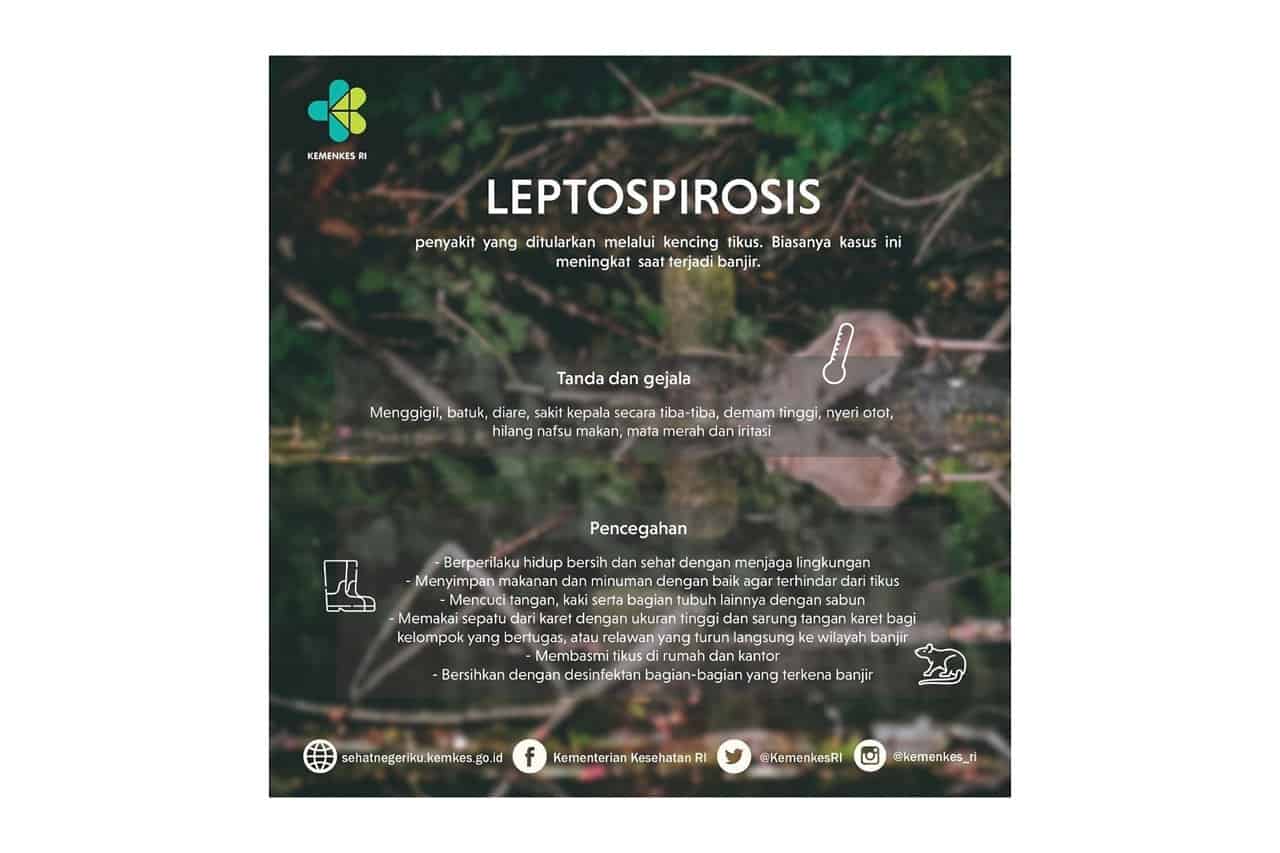
Most of Greater Jakarta area has been flooded since January 1 to 4, 2020. Many people affected by the flood had to flee for several days. Now, almost all areas affected have receded, displaced people began to return to their homes. However, new problems appear.
The amount of mud and rubbish left over by the flood that settles in residential areas has the potential to bring a number of diseases such as diarrhea and flu. However, this time the government through Indonesian Ministry of Health warned of a high risk of developing leptospirosis. What is leptospirosis?
Compiled from several sources, leptospirosis is a disease caused by the bacterium Leptospira which is transmitted from animals to humans or vice versa. Some types of animals that can transmit leptospirosis are dog, rodents like rat, and livestock animals such as cow and pig.
This disease can be transmitted through urine and animal feces that dissolve in flood water or mud. Leptospirosis can enter human body through mucous membranes, eyes, nose, injured skin, and even food.
Usually, people infected with the Leptospira bacteria will experience symptoms such as shivering, cough, diarrhea, headache, high fever, muscle aches, no appetite, and eye irritation.
The Indonesian Ministry of Health also urges people to do the following things to prevent leptospirosis:
- Behave clean and healthy life by protecting the environment.
- Storing food and drinks properly to avoid mice.
- Wash hands, feet, and other body parts with soap.
- Wear high rubber shoes and rubber gloves for the group on duty, or volunteers who go directly to the flood area.
- Eradicate rats in home and office.
- Clean with disinfectant in flooded houses.
Top Picture Source: Instagram @kemenkes_ri

